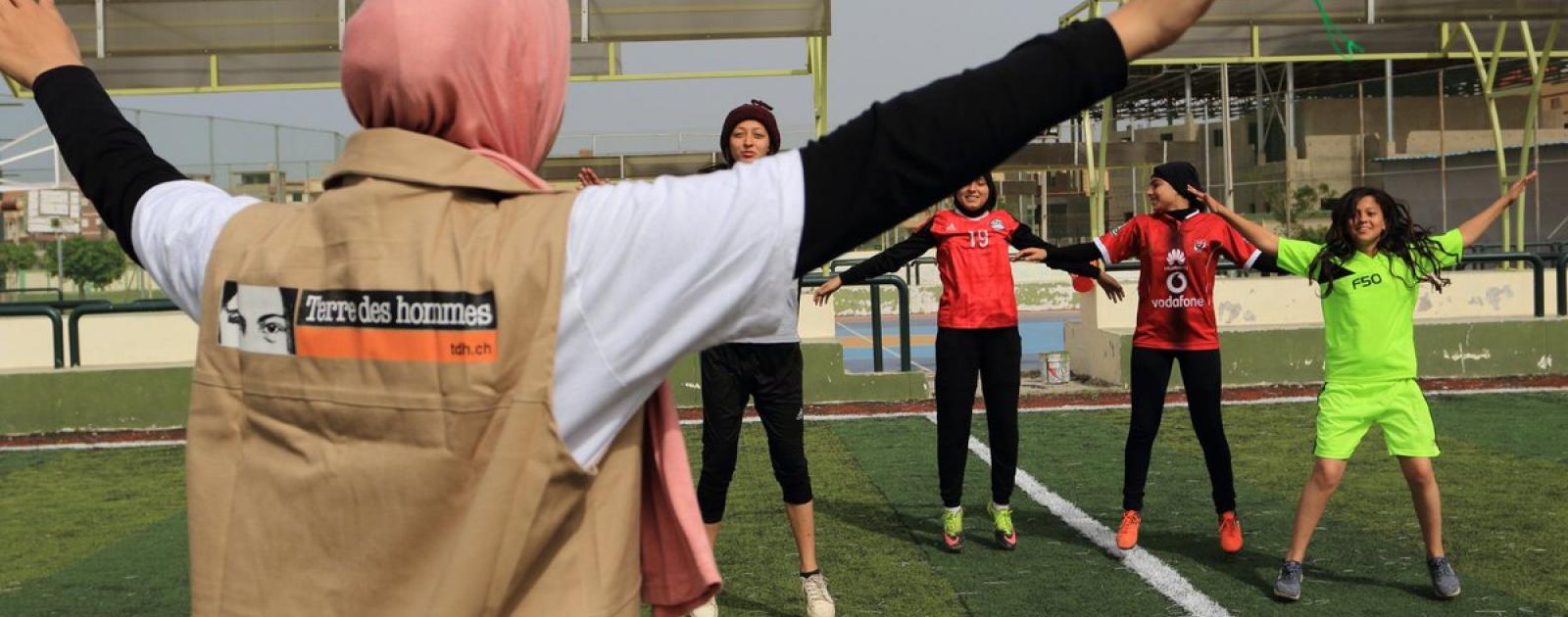High numbers of young refugees are struggling with disconnection from friends, family, and other people who could provide them with practical or emotional support. Terre des hommes Hellas is offering them the possibility to come together, connect and build resilience through football.

The insufficient services for refugees combined with protection and survival challenges, exposure to violence, and personal loss, negatively impact refugees’ sense of self and safety, and affect the general wellbeing. Terre des hommes (Tdh) improves young refugees’ psychosocial wellbeing by using football as a tool for protection, social inclusion, and cohesion.
Starting April 2019, Terre des hommes Hellas organised weekly football training sessions in and around Thessaloniki. Both locals and refugees over the age of 15 years were invited to play or coach regularly. These sessions helped participants to improve their social and cooperation skills, meet others with the same interest and make friends. We welcomed everyone regardless of their nationality, gender, sexuality, religion and football level. Our football sessions were inclusive and required respectful behavior from players, coaches, and referees.
"These weekly meetings are an opportunity for refugee children and young people to get out of the camps and the apartments where they are housed and to do something constructive that brings them in contact with the local population", said Melina Spathari, Advocacy and Communications Manager at Terre des hommes Hellas, adding: "Our experience has shown us that through such activities children acquire a sense of belonging in a community. Movement and physical well-being is also a pathway to mental health. Many children and youth in migration have suffered trauma in their long journey to reach Europe. Sports acts as a remedy to them,"
In order to strengthen the local capacity, Tdh recruits and trains eight volunteer coaches to use football as a means for protection, social inclusion, and psychosocial support. The coaches help the organization to run the football sessions which consist of a warm-up, training drills, and finish with a match between the participants.
This project builded on the work of other local sports organisations which have been making football available for all in Thessaloniki, including its diverse refugee population. Having a 13 years experience in using sport as a tool for protection, Tdh supported Refugee Trauma Initiative Hellas (RTI) to increase community engagement and participation, and create leadership opportunities through the training of coaches. RTI also improved its capacity to promote inclusion and cohesion and provide psychosocial support through their work.
Overall, we equipped RTI with a replicable model of using sport as a tool for protection which ensured:
- a safe and supportive environment;
- opportunities to build young people’s individual skills, capacities, and resources;
- positive and sustained support and mentoring of peers, coaches, and others;
- meaningful engagement and leadership of refugees in sports activities.
The weekly football sessions were funded by the European Union.